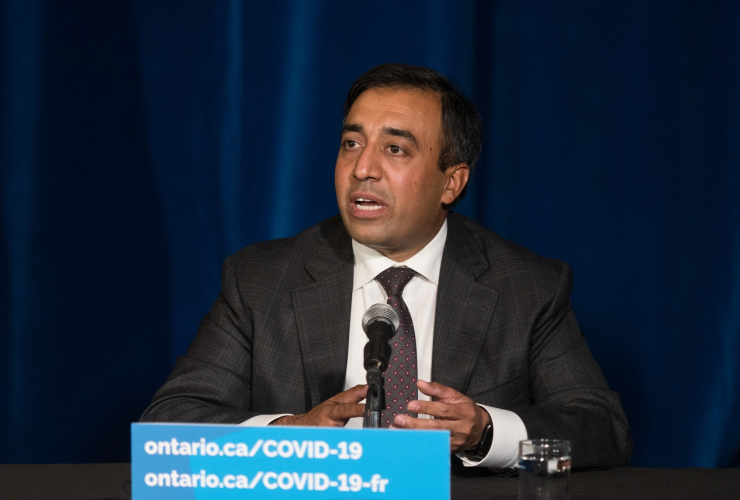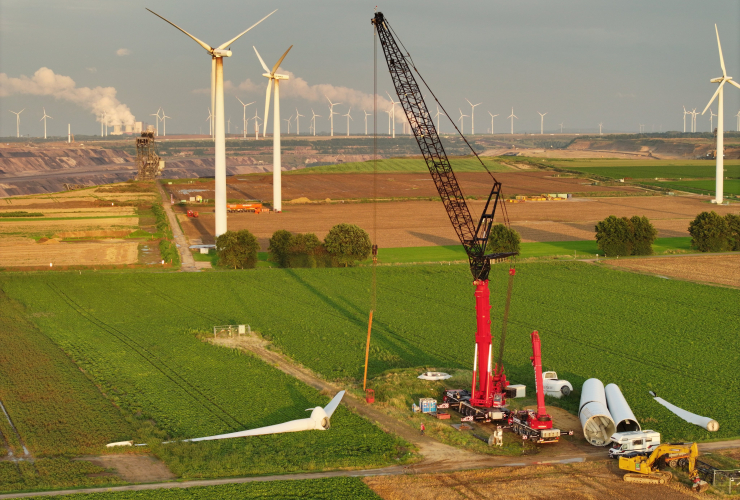Support journalism that lights the way through the climate crisis
Thorold city council has voted to deny Northland Power's proposed gas plant expansion in the city's southern region. This week’s decision comes as a response to mounting concerns over emissions and the environmental impact of the $300-million project, echoing a growing global sentiment to prioritize cleaner energy alternatives.
With a population of 20,000, Thorold is in the regional municipality of Niagara, about 130 kilometres west of Toronto.
Residents presented their arguments before the council members, who appeared deeply moved by the compelling climate concerns raised.
“We must urgently stop burning fossil fuels if we hope to have a livable future for ourselves and for the generations that come after us,” said Thorold resident Mark Freeman.
Freeman referenced the Ontario government's recent release of a climate change report, which echoed his concerns about the potential climate damage to property and crops across Ontario, including the Niagara region. Freeman stressed immediate action to reduce greenhouse gas emissions, which contribute to climate change, is essential to prevent severe consequences.
The proposed expansion was to be near the original Northland Power plant, constructed in 2010 with a capacity of 265 MW.
As part of the Doug Ford government’s plan to boost Ontario’s electricity system by building new gas plants, the proposed 200 MW peaking plant would provide power to over 100,000 homes during peak demand.
In October 2022, the Independent Electricity System Operator (IESO) made a recommendation for Ontario to acquire up to 1,500 MW of new gas-fired power generation. Subsequently, the Ministry of Energy instructed the IESO to initiate the procurement process.
The ministry has also instructed the IESO to provide further clarification regarding the necessity for proponents to secure local council resolutions in support of their proposals. The IESO decided project proponents must secure a municipal resolution of support to be eligible for a contract. Thorold city council's vote against plant expansion effectively hinders Northland's proposal from advancing further.
Salvatore Provvidenza, contract manager for market and resource development at Northland Power, made a case for the project's approval, emphasizing the need for additional energy capacity, cost-effectiveness through the use of existing infrastructure and the potential for lower emissions with the adoption of low-carbon fuel.
But Freeman told council that another gas plant would increase local air pollution, adding to the risk of health problems for residents. “Personally, I want to live in a community that is working towards mitigating climate change by reducing our greenhouse gas emissions, not be part of a horrible plan that's going to make the problem worse,” he added.
Coun. Anthony Longo acknowledged the contrasting opinions surrounding the gas plant, stating, "It appears that we are faced with a decision that spans the financial interests of the proponents and the broader environmental and health concerns of both our province and, more specifically, the people of Thorold. In this matter, I stand firmly on the side of environmental responsibility and the well-being of our community."
Environmental advocates applauded the council's decision and emphasized the importance of cleaner energy sources in the fight against climate change.
"Ontario doesn't need more gas plants,” reads a statement from the Environmental Defence. “We are encouraged to see communities like Thorold recognize this and stand up for their residents. In order to ensure a safe and stable future, we need more clean energy, not more fossil power."
Environmental Defence states gas plants contribute to global climate change and local air pollution, primarily in the form of nitrogen oxides and particulate matter. "Thorold has both contributed to the global project of decarbonization and taken an important step to protect air quality in Thorold and the broader Niagara region."
According to the statement, Thorold's rejection of the project will save Ontarians hundreds of millions of dollars. Based on recent gas plant contracts signed by the IESO, the proposed plant could have incurred costs exceeding $700 million over the contract's term. This would have amounted to a significant subsidy for fossil fuel project developers, the statement reads.
Thorold's resolute stance against the plant sets a commendable example for other municipalities, the statement added. It underscores the importance of environmental responsibility and the pursuit of cleaner energy options when considering major development projects, particularly in an era when the world is increasingly focused on addressing climate change.
This story was produced in partnership with Journalists for Human Rights for the Afghan Journalists-in-Residence program funded by the Meta Journalism Project
Now that the Greenbelt land
Now that the Greenbelt land is being returned (and even though the mess may linger on for a while) it is time to get the Ford PCs to back down on their foolish plans to build three new methane gas powered electricity plants. Thank you National Observer for staying on this story (time to redouble your efforts here) and to Thorold city council for just saying "no".
I doubt Northland will be
I doubt Northland will be entirely deterred from its building plans. Vigilence will be required from every municipality and some may not be so principled.
In the US the utilities lobbies have for generations run roughshod over local and largely depressed/disadvantaged municipalities. They are still doing it and the war cry of climate justice is racial justice is not making much headway. It would not surprise me if Canada is not soon receiving climate justice refugees. We had better get our acts together - listen up, fossil fueled provinces.






Comments